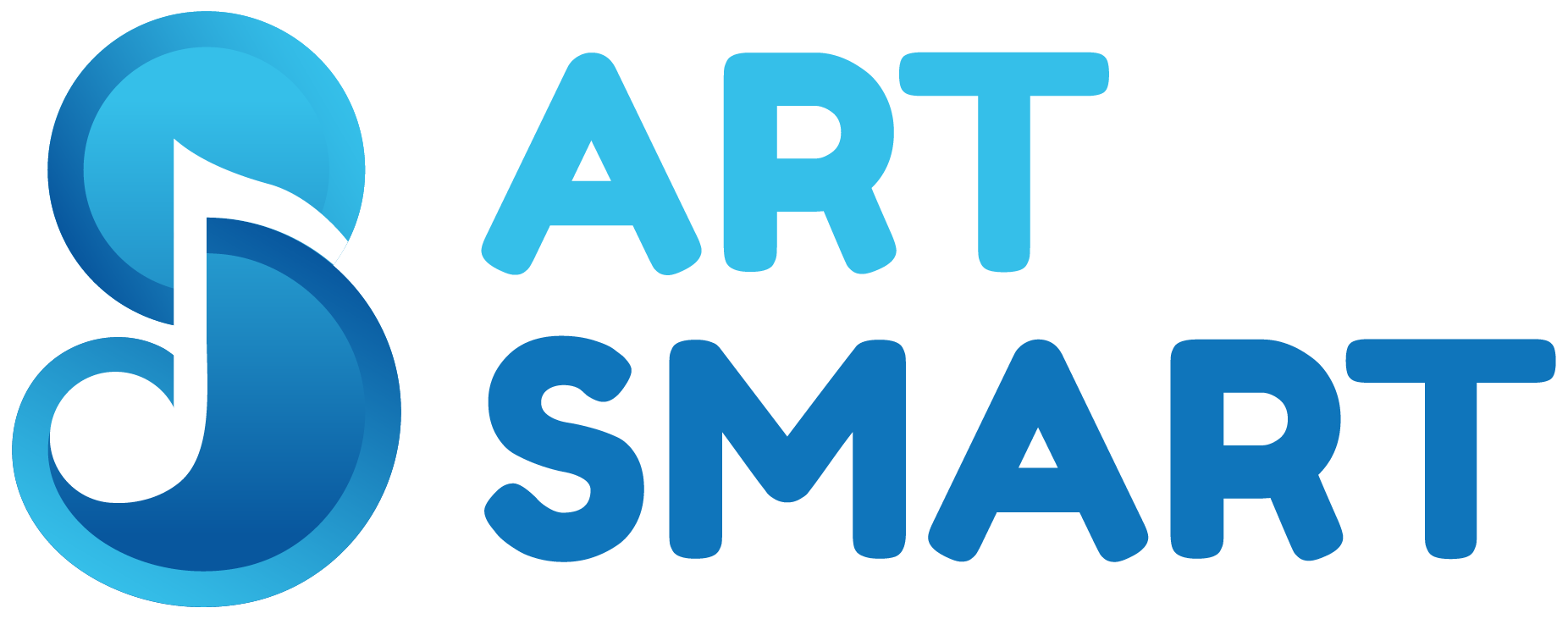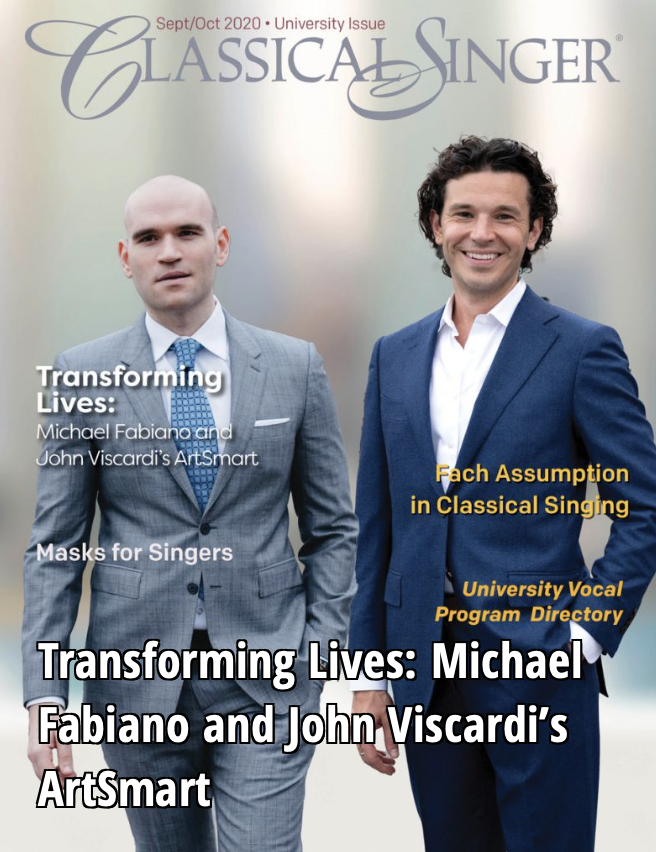
Tenor Michael Fabiano and baritone-transitioning-to-tenor John Viscardi have been friends for 13 years. They met while students at the Academy of Vocal Arts (AVA) in Philadelphia, an elite school for promising opera singers. Both have had extremely successful operatic careers, built by hard work and discipline. The two also possess passionate entrepreneurial spirits and a desire to do good.
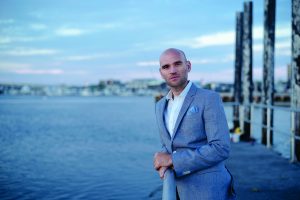
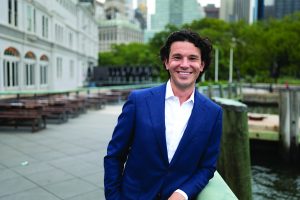
From the beginning of their friendship, they dreamed about building something together that would make a difference. After years of throwing ideas around, they zeroed in on the fact that they wouldn’t be where they are today without their voice teachers. And both find that most students are not given the chance to benefit from this type of relationship because of the prohibitive cost of private lessons. They were also tired of singers being constantly asked to do things for free and wanted to provide a pathway where singers had an opportunity to make good money doing something directly related to their area of expertise. Thus, with a fortuitous meeting of the minds, ArtSmart was born.
ArtSmart empowers students in underserved communities to find their voice through mentoring with paid, professional artists. The vehicle for mentorship is private voice lessons, where mentors and students meet once a week for the entire school year. Mentors are chosen through a rigorous interview process and are paid a competitive rate for their time.
At the beginning of the school year, students audition for the program, and those accepted are paired with a mentor. After a program orientation, mentors and students begin their lessons, get to know each other, and work to establish goals. The program culminates in an end-of-year performance and national competition open to all ArtSmart students. Each year ArtSmart provides 20,000 free voice lessons to students in underserved communities. Learn more about this program and its founders in the following interview.
Tell us a little more about what makes ArtSmart unique.
John Viscardi: ArtSmart’s success comes in large part because our students are able to develop a dependable, healthy relationship with an adult role model and use artistic expression as the vehicle to freely express themselves within that relationship. The program helps students develop crucial capabilities, including the ability to set and achieve goals, deal with challenges and adversity in a healthy way, and develop the self-confidence to speak up for what they believe.
ArtSmart has formed successful partnerships with opera companies in many of our cities. We are the only arts mentorship organization in the country that pays mentors and we are the only national arts mentoring organization.
Michael Fabiano: We exist to serve both the students and the mentors. We employ artists that are prolific leaders and teachers, but who also want their careers as soloists affirmed. The ArtSmart folks are self-starters and go-getters. I advocate for them and help give them a platform.
We want to give artists another pathway to dignity and reward their hard work. On the front end, we get them teaching. From there, I help them get more comfortable getting into the public eye by talking to publicists, promoters, and agents on their behalf.
Why do you believe that music education can help Americans with upward mobility in life?
JV: My education as a musician has played a crucial role shaping me into who I am today. Music education and performance inspires self-discovery and fosters an environment ripe for creativity. In today’s economy, we need to be able to think outside the box and apply ourselves rigorously to realize our vision. Music education and performance prepare us for that in powerful ways.
At ArtSmart, I see the line from student to myself as a professional artist and co-executive director as an unbroken chain. I believe every student at ArtSmart has the potential to one day become a professional musician or executive director. I didn’t go to business school. I acquired the skills necessary to build this organization by applying the curiosity, creativity, and drive I cultivated as a musician.
One of our students from the pilot year is a senior [and] just accepted a full ride to Rutgers. One day soon, he’ll hopefully become a junior mentor, then a full mentor. One day, he can become executive director himself. That would be a dream come true.
MF: To me, upward mobility means that these kids graduate. We want to give kids options, even if they don’t go to college. We want people to be able to make choices about their lives. We do not expect all of them to major in music. We expect them to glean insight into all the social, psychological, and critical thinking skills.
We wrote a very comprehensive curriculum at ArtSmart. Only 25 percent is dedicated to music. It has a goal tree.
We looked at other organizations across the country that give services to children and young adults and found that the fastest way to help people to grow is for them to be mentored. It is similar to a big brother/big sister program with one-on-one mentoring from a young adult to a teenager. This is music mentoring instead of personal mentoring.
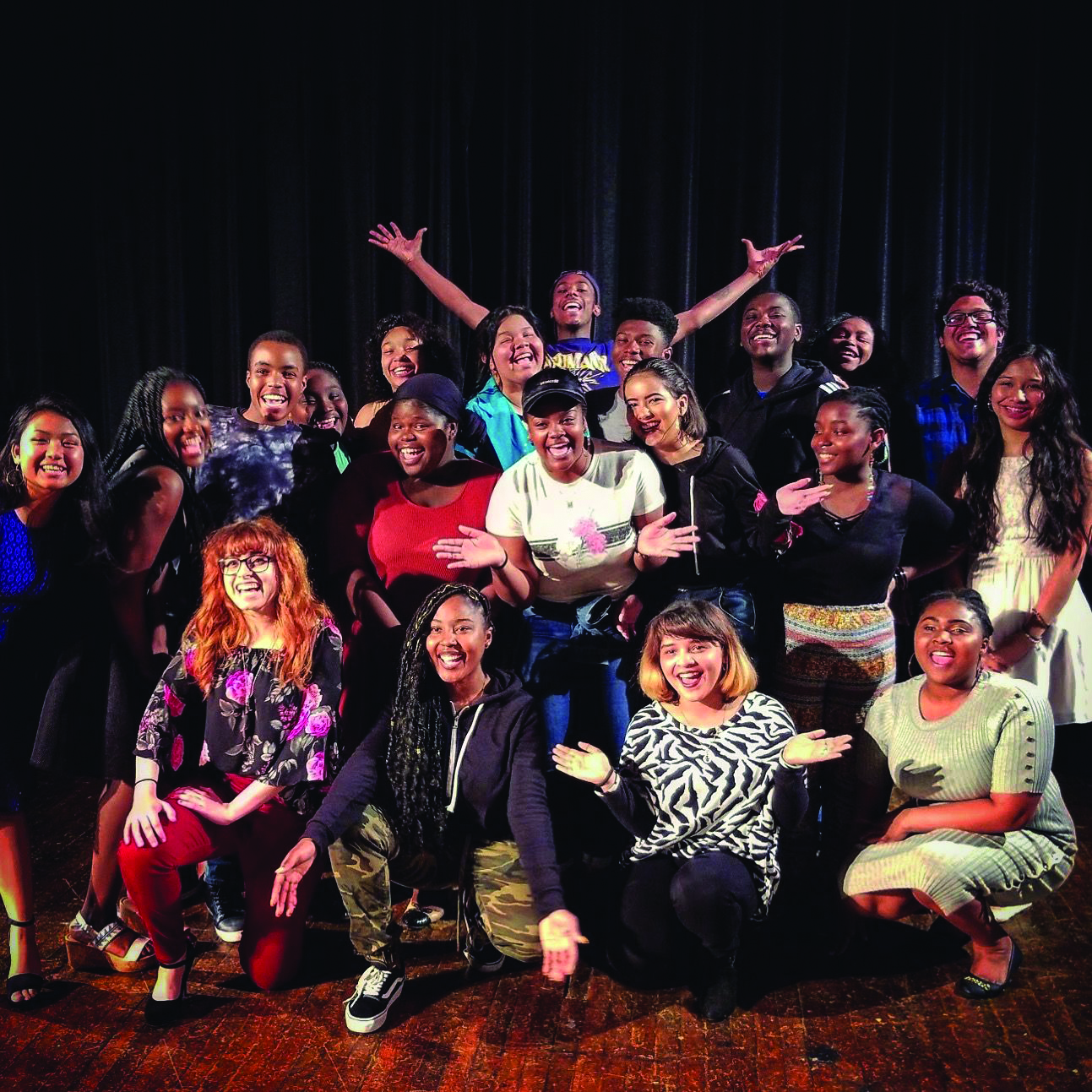
How did you choose which cities to serve?
JV: ArtSmart cities are chosen based on a number of factors, primarily funding support, school interest, and the estimated number of qualified artists in the surrounding area. Philly is where I call home and it is where ArtSmart has its headquarters. In addition, AVA is located in Philadelphia and it was very important to both of us that we have a program there.
Newark/Jersey City is a high-need area with proximity to New York City and a place very dear to Michael’s heart. New York City was a no-brainer for us from the beginning, given the mix of need, qualified artists, and financial support.
San Francisco is a city where Michael has a great deal of visibility and where a significant number of our supporters reside. We also have a great relationship with the San Francisco Unified School District and have been able to work closely with them to bring ArtSmart into many SF schools.
Chicago is our newest city. It has a profile similar in many ways to NY and was a logical location for expansion.
Do you recall a formative moment in your own music education?
JV: The first time I heard my first voice teacher, Mark van Schenkhof, sing a high B-flat. I had never experienced an aural explosion of that magnitude and couldn’t believe a sound like that could come from a human. I can still remember the giddy laughter that involuntarily came out of my body.
MF: George Shirley was my first voice teacher at the University of Michigan. I was supposed to be going to their business school, but George said, “I think you should study opera. You have the talent and the skill to really make a career out of this.” I said it wasn’t my focus.
He replied, “If somebody is imbued with a great talent, then they have a moral responsibility to share it . . . then the talent isn’t just yours, it is everybody’s. I don’t think I want to teach you if you can’t make a commitment to this.” After the first semester, he gave me a poor grade, which shattered my GPA and took my merit scholarship away. I asked, “Why did you give me this grade?”
He replied, “You have more talent than other people and you are not living up to your potential. Your voice is good, but you are not taking the time to really curate it. You should be in the practice room two hours a day.” Needless to say, I committed fully from that day forward.
You have been extremely successful since founding this organization in 2016. What are your short- and long-term goals for the future of ArtSmart?
JV: We have worked hard to optimize the ArtSmart program for our students and mentors. We’ve paid out almost $1,000,000 to professional artists since getting our start four years ago. Our current goal is to get back on our pre-COVID-19 expansion trajectory. Long term, we have two goals: 5,000 students in the ArtSmart program in five years and the ability to deliver arts mentorship through a diverse set of artistic disciplines.
MF: In light of COVID-19, we are staying still and staying the same size. We are not going to expand next year because we have to protect what we already have. We lost seven major fundraisers. Many donors have not yet affirmed their commitment through the remainder of the year, and I have been spending eight or more hours per day on the phone with donors trying to lock them in.
This service is going to be needed more than ever for these kids. We cannot let our kids drop out. We want to be sure the people we employ have a job next year. As a 501(c)(3), it is mandated that we cannot disburse money when the mentors are not teaching. So we created a relief fund for our employees outside of the nonprofit and were able to get them about 1/6 of the remaining pay for the year.
How do you select your mentors? How can interested singer-teachers apply?
JV: Professional singers interested in becoming an ArtSmart mentor can apply via our website, www.artsmart.org.
Artist mentors for each school year are selected through a rigorous application process that begins in April. It involves résumé review, background checks, and interviews with the ArtSmart leadership team. We are looking for people with a passion for teaching, willingness to roll up their sleeves and do the hard work, and a firm belief in the transformative power of music.
MF: At the beginning, we recommended people we knew already and interviewed them as a team. Our first hire, Tom Mulder, is now our director of program operations. We now receive hundreds of applications. Tom manages interviewing everyone, and then John and I interview a select group.
What troubles you the most about the roadblocks young artists pursuing singing face today, and what can they do about them?
JV: There are a limited number of opportunities to make good money—and many young singers vying for those opportunities. The COVID-19 economic crisis has compounded this challenge. Young artists must sing at the highest possible level and figure out a way to stand out from the crowd. While this has always been the formula for success, a decrease in the amount of opportunities makes the challenge harder to overcome. This is why we started ArtSmart.
MF: When I was younger, I didn’t have money. I didn’t have resources. I worked from age 18—menial jobs, everything and anything possible, to earn money. The only goal was to support my singing career. I saved a lot of money.
You have to work hard to achieve greatness in this business. There are people with great talent, and those that don’t necessarily have great talent but work very hard and don’t expect anyone to do anything for them. When you work hard, you should be rewarded. Consider these possible scenarios:
AA: Individual with money who has drive
AB: Individual with money and no drive
BA: Individual with no money who has drive
BB: Individual with no money and no drive
The individual with the greatest roadblock will of course be BB, followed by AB. AA has the advantage, but I rarely come across this type of individual. BA is the self-starter. I think drive is everything.
I have a way of thinking that is different from most artists. A lot of it is learned from being in the marketplace and seeing what works and doesn’t work. I enjoy helping artists with strategic planning. Everyone has to have a supportive network, or what I call the “board.” You are the chairman of your own board.
I encourage people to categorize needs and wants. Until we accomplish every need, the wants are irrelevant. I also help people learn to have more efficiency in their scheduling. I have had the great fortune of having great teachers and coaches and a good, solid career. John and I want to give back, to help other people do better.
If you are interested in donating to ArtSmart, please visit artsmart.org/donate/.

Dana Lynne Varga
Dr. Dana Lynne Varga is a sought-after soprano, voice teacher and career coach, as well as the Founder and Artistic Director of MassOpera. She was the 2016 first place winner of the CS Competition; Emerging Professional division. Dana is currently on the Voice and Opera faculty of the Longy School of Music at Bard College in Cambridge, MA. She regularly presents vocal master classes as well as classes on business and entrepreneurship for singers all over the east coast.
Article DETAILS:
By Dana Lynne Varga | Published on 09/28/2020
